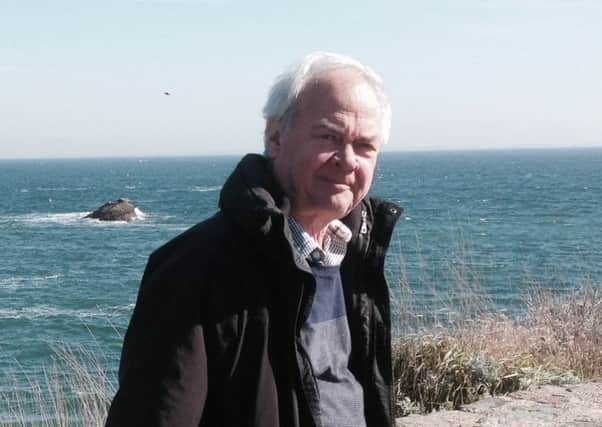Book review: Madeleine, by Euan Cameron


Now, in his eighth decade, he has written his own first novel. Further disclaimer: I read it in manuscript and proof, and am now quoted on the front cover, calling it “A beautifully written and moving story of love and betrayal that casts light on the Dark Years of French history”.
The Dark Years were 1940-44, the years of defeat and the Vichy regime with its “National Revolution”, of the German Occupation and Collaboration, of the Resistance and the “Epuration”, the bloody purge of those who had collaborated with the Germans that followed the Liberation. It is a fascinating period, also bleak and disturbing because of the questions it invites.
Advertisement
Hide AdMadeleine is a quest novel. The narrator, Will Latymer, an English violinist, gets a letter from a French cousin, Ghislaine, of whom he knows nothing. She tells him that her mother, Madeleine, has received a package of papers from her first husband, Henry Latymer, an English painter and Will’s grandfather, who has just died in Argentina.
Will knows nothing of his grandfather, either – he was never mentioned in the family – but he accepts the invitation.
Henry came to Paris before the war, fell in love with the city – he was already a Francophile – and found more interest in his work there than he had in London. Politically right-wing, even extremely so, he thought the war unnecessary and resisted his father’s urging that he do his duty and return home to enlist.
Instead, having made a friend who owned a gallery in Vichy, he moved there. Despite the dreadful war news it is an idyllic time for him. His exhibition is a success and he falls in love with his friend’s sister, Chantal. It doesn’t concern him then that she is Jewish. It is in Vichy, too, that Henry will meet Madeleine, whose father is a senior civil servant. Madeleine, now living in Brittany in the modern part of the novel, may have been the love of his life; but her story, like his, is as mysterious as it is sad.
It would be wrong to recount the plot. Enough to say that Henry and Madeleine’s family find themselves on the wrong side of History. There is a splendidly evocative chapter set in Sigmaringen, a little town on the Danube, where the remnant of Vichy, now known as “la France allemande”, dragged out its last wretched days.
Throughout the novel, as it moves back and forward in time, we are confronted by the enigma of Henry. Is he a good man who does some bad things? Perhaps; he is certainly guilty of one despicable, yet all too understandable act of cowardice. The question is whether he can atone for it. Not until Will and Ghislaine go to Argentina to investigate his later years will we get an answer.
Advertisement
Hide AdThat they should fall in love offers both a parallel to the story of Henry and Madeleine, and a sharp contrast: a reminder of how fortunate the generations of Europeans born since the war have been.
Madeleine is a beautifully constructed and well-paced novel, written from a Catholic viewpoint, with an awareness of sin and the possibility of redemption that is rare today. Euan Cameron has respect and sympathy for his characters. The novel is redolent of a love of France – especially of a France which survives only in the memory of those of us old enough to have known it. His descriptions of Paris in its varying moods, of Brittany and the Midi, will give a purring pleasure to all Francophiles. At the same time he is fully aware that much of that old Catholic France was narrow, intolerant and unpleasantly anti-Semitic.
This is a novel which has matured a long time in the author’s imagination; it will surely stay in the reader’s. - Allan Massie
Madeleine, by Euan Cameron, Maclehose, 330pp, £16.99